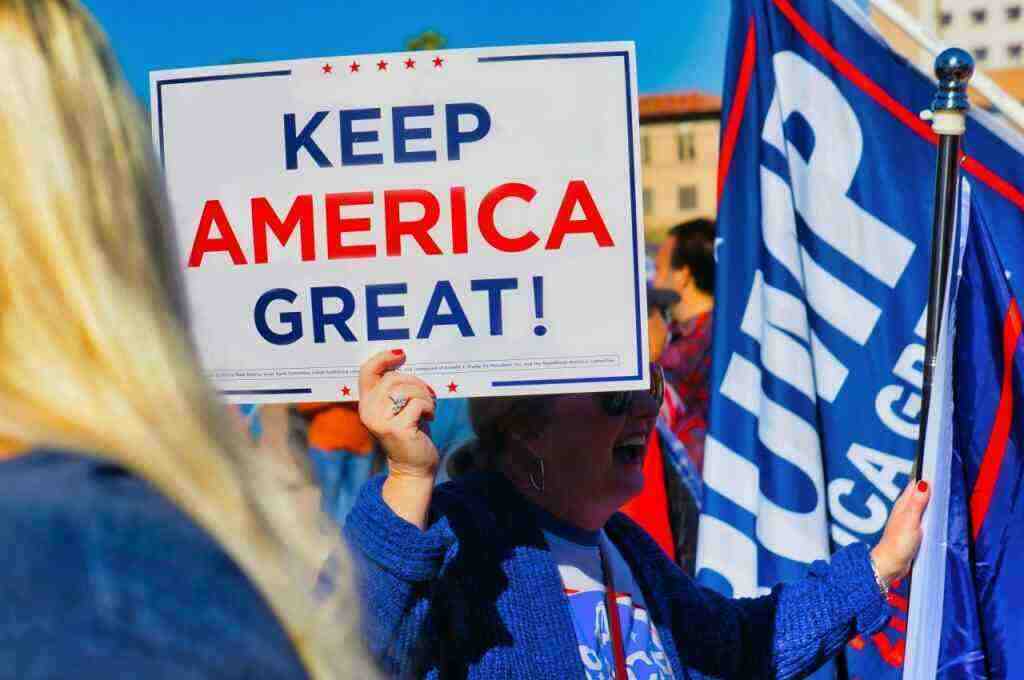Unwavering Support: White Evangelicals Stand Behind Donald Trump
A Decisive Victory in Iowa Caucuses Reflects Evangelical Enthusiasm
In a resounding affirmation of their enduring support, white evangelical Christians propelled Donald Trump to a decisive victory in the 2024 Iowa Republican caucuses. Despite his controversial past, marred by multiple divorces, allegations of extramarital affairs and sexual assault, and divisive rhetoric, evangelicals continue to overlook these concerns, viewing him as a champion of their values.
Imperfect People, Perfect God: A Biblical Perspective
Shelley Buhrow, a fervent Trump supporter since 2016, dismisses concerns about Trump’s personal life, citing biblical examples of imperfect individuals. She believes that God’s perfection stands in stark contrast to human imperfections and that Trump’s flaws do not disqualify him from leadership.
Disregard for Criminal Charges: Faith in Trump’s Innocence
Buhrow steadfastly dismisses the 91 state and federal criminal charges against Trump, including attempts to overturn the 2020 election, as politically motivated and unlikely to result in convictions. Her unwavering faith in Trump’s innocence reflects the unshakable loyalty of many evangelicals towards him.
Strategic Choice: Abortion as a Deciding Factor
Binary Choice: Trump vs. Democratic Abortion Stance
White evangelicals have historically supported Trump as a strategic choice, viewing him as a staunch defender of their anti-abortion stance. Luana Stoltenberg, a Republican state representative, initially had reservations about Trump but was persuaded by those who believed he was “supposed to be” president.
Abortion Rights as a Defining Issue: 2016 and 2020 Elections
In the 2016 and 2020 general elections, approximately 80% of white evangelicals cast their votes for Trump, primarily driven by their opposition to abortion rights. They saw Trump as the candidate who would advance their goal of restricting abortion, in stark contrast to Democratic candidates who supported abortion rights.
Continued Support for Trump Despite Alternative Options
In the 2024 Iowa caucuses, over half of white evangelicals remained steadfast in their support for Trump, even with several other Republican candidates in the running. Brad Sherman, a state representative and evangelical pastor, sees Trump’s unconventional style as an asset in the current political climate, describing him as “brash” and “a fighter.”
Cultural Crossroads: Declining Influence and Shifting Demographics
Paradoxical Situation: Power and Decline of White Evangelicals
White evangelicals find themselves in a paradoxical situation, wielding outsized political power while facing a steady decline in their overall share of the U.S. population. Their grip on the Republican Party grants them significant influence, yet long-term trends of increasing racial diversity and decreasing religiosity are eroding their numbers and cultural impact.
Growing Latino Evangelical Communities: A Counter-Trend
Latino evangelical communities are experiencing growth, driven in part by immigration patterns, presenting a counter-trend to the decline of white evangelicals. Al Perez, an Iowa pastor, works diligently to connect Republican candidates with voters of color, but he expresses concern about the way some evangelicals have compared Trump to Jesus Christ.
Pentecostal Tradition and Divine Prophecies: Blurred Lines
Perez, a Pentecostal pastor, is troubled by the belief among some in his tradition that Trump’s 2020 election victory was foretold by divine prophecies. He emphasizes the danger of blurring lines and placing excessive trust in any candidate’s ability to solve all of society’s problems.
Evolving Meaning of “Evangelical”: Political Label and Theological Identity
Increasingly Political Label: Trump-Supporting Faction’s Dominance
Samuel Perry, a sociologist, observes that the term “evangelical” has taken on an increasingly political meaning, associated with conservative, Trump-supporting factions within evangelicalism. This political faction has successfully claimed the evangelical space, leading some who do not identify with this political identity to distance themselves from the term.
Unwavering Support for Trump: Few Signs of Softening
Despite the politicalization of the term “evangelical,” Perry finds that those who still identify as evangelical show no signs of softening their support for Trump. Even a small shift in evangelical support could significantly impact the November election, potentially making it difficult for Trump to win in key swing states.
Efforts to Persuade Evangelicals: Progressive Policies and Swing States
Vote Common Good’s Mission: Engaging Evangelicals and Catholics
Doug Pagitt, executive director of Vote Common Good, aims to persuade evangelicals and Catholics to support progressive candidates and policies. The organization focuses its efforts on key swing states, believing that shifting a small percentage of evangelical voters away from Trump could determine the election’s outcome.
New Hampshire Primary: Moderate Voters and Potential Shift
The upcoming New Hampshire primary on January 23 presents an opportunity for a potential shift in evangelical support, as the state has fewer evangelical voters and more moderate voters. The outcome of the New Hampshire primary could influence the trajectory of the Republican nomination and the broader evangelical support for Trump.
Call to Action:
As the 2024 election approaches, it is crucial to engage in thoughtful discussions about the role of faith and values in politics. Let’s strive for a more informed and inclusive dialogue that respects diverse perspectives and seeks common ground for the betterment of our communities. Share your thoughts and join the conversation online using #EvangelicalsInPolitics.
